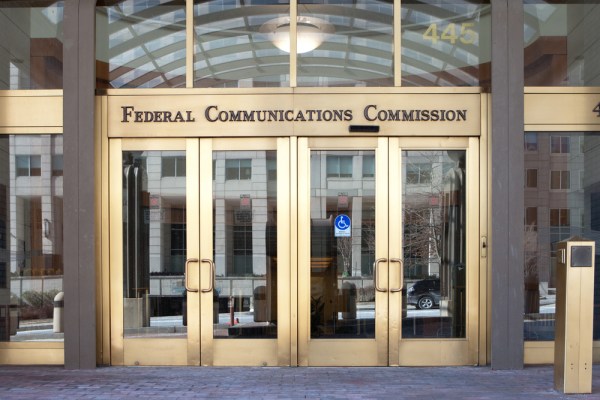An FCC order today reduced the reach of a net neutrality rule requiring broadband providers to share certain data regarding their services. Originally, providers with less than 100,000 subscribers were exempt; the order raises that number to 250,000 — potentially allowing more companies to escape complying with certain consumer protections.
This order isn’t the gutting of net neutrality many fear will come from this new FCC led by an avowed opponent of the policy, Ajit Pai. But the particulars of its passage indicate that the commission is plainly headed in that direction.
For a little context, the transparency rule requires internet providers to…
…publicly disclose accurate information regarding the network management practices, performance, and commercial terms of its broadband Internet access services sufficient for consumers to make informed choices regarding use of such services and for content, application, service, and device providers to develop, market, and maintain Internet offerings.
In 2015, these requirements were “enhanced” to include a few other measures: any and all promotional rates, fees and surcharges, packet loss, data caps, “application-agnostic degradation of service to a particular end user” — for example, throttling your traffic after you hit a “soft” data cap or the like — and a few other odds and ends.
Now, some critics pointed out that a mom-and-pop provider in a small town with 1,000 subscribers might find it difficult to meet these new enhanced transparency rules. Accordingly, the order established a provisional exemption for any company with fewer than 100,000 subscribers. They still have to file the original transparency rule data, just not the enhanced stuff. That way smaller companies could work up to providing the newly required info without feeling like they were under the gun.
The plan was to revisit this number now and then see whether it needed to be changed, and twice the commission has found that 100,000 seemed fine, although the 250,000 number had been suggested by dissenting members. Then came the new administration.
On December 19, 2016, Ajit Pai and Michael O’Reilly, the current Republican members of the commission, wrote a letter to the Cellular Telephone Industries Association, American Cable Association and other industry trade groups about the transparency rule and small business exemptions. “We will seek to revisit those particular requirements, and the Title II Net Neutrality proceeding more broadly, as soon as possible,” it reads.
They made good time: Just a month after Pai ascended officially to the role of chairman of a 2-to-1 Republican majority on the commission, “those particular requirements” industry leaders objected to have been softened. (A couple other ones, too.)
You’d be justified in asking why this is a big deal. There was already an exemption for up to 100,000, which is quite a lot, right? Is increasing that to 250,000 really such a major change?
Commissioner Michael O’Rielly points out that “approximately 17 total wireline and wireless companies nationwide have customer levels between these points.” Hardly giving everyone in the nation a free hand, then, even if lots of those may be subsidiaries of larger companies. So why are people worried?
Well, it’s probably for the reasons Commissioner Clyburn lists in her dissenting statement.
First, she identifies the constant harping on the requirements as (in Pai’s words) needless, onerous, ill-defined, burdensome and so on as misleading and unsupported.
The entire small business exemption idea, she notes, was inspired by a similar one for small telecoms providers, exempting them from long-distance call documentation. An Office of Management and Budget study estimated it would take 64 hours annually for a company to comply, so they exempted ones with less than 100,000 subscribers.
The exemption for net neutrality rules used that as its example. But the OMB in this case estimated that compliance with the enhanced rules would eat up a whopping… 6.8 hours per year.
Does that sound “onerous” to you? If Pai and O’Rielly are concerned with time-consuming regulatory requirements, why aren’t they fussing over the telecoms one, an order of magnitude more time-consuming? Why are they trying so hard to release even larger companies — ones that would be troubled less than those already exempted — from requirements that aren’t difficult to comply with in the first place?
The obvious answer is because it’s net neutrality related, and anything they can do to weaken or reduce the scope of net neutrality rules is high on their list of priorities.
Second, Clyburn writes:
…the Order runs roughshod over past precedent, with no discussion as to why the Commission is changing its mind… today you will not find any rational discussion as to why this cutoff has been revisited. Burdens that the Commission discounted in the past are now given credence without evaluating why prior decisions are being jettisoned.
It would be one thing if there was a coherent argument as to why the rule was being changed. But look at this headline and tell me whether you expect a cogent argument to follow below:

You read above that hardly any companies will be affected — 17, by O’Rielly’s count — and that they can expect to save 7 hours each this year. Isn’t it rather puffed up to make such a big deal over this, when it really appears to be nothing more than a power play to cut the corners off net neutrality rules wherever possible — as promised on the record to industry groups? The sensational, one-sided press release hides a threadbare justification of a power play.
The circumstances indeed suggest that Pai and O’Rielly are attempting to build a narrative of an overreaching FCC being reined in by the newly fair-minded commissioners. That’s a good foundation to start with when it comes time to take more serious steps to hobble net neutrality.

